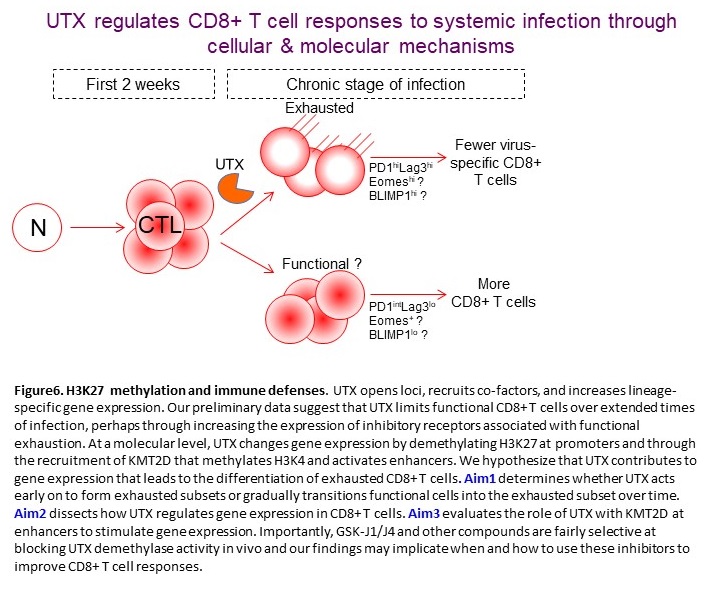Jason Whitmire, PhD (Associate Professor, Genetics) is the PI on a new award from NIAID.

The project, titled “Regulation of CD8+ T cell responses to chronic virus infection” starts in February and represents the second R01 that Jason has secured recently. The project is focused on understanding why CD8+ T cells undergo excessive apoptosis or become functionally inactive and unable to resolve infection during chronic viral infections in mice and humans. Jason’s lab recently identified a critical link between CD8+ T cell expression of UTX, an H3K27 demethylase, and impaired CD8+ T cell responses to chronic lymphocytic choriomeningitis virus (LCMV) infection in mice. Virus-specific CD8+ T cells lacking UTX showed improved accumulation and maintenance over time, reduced expression of the inhibitory receptors, and were resistant to apoptosis. Data suggest that UTX restricts virus-specific CD8+ T cell responses by increasing T cell expression of inhibitory receptors, perhaps converting cells with memory potential into functionally exhausted or senescent cells.
 The central hypothesis is that UTX controls T cell differentiation through a mixture of demethylase-dependent and demethylase-independent mechanisms that promote gene expression, including at inhibitory receptor loci. Information learned from this project will be useful for comprehending how epigenetic changes due to histone methylation guide CD8+ T cell exhaustion. Long-term, the research may implicate the use of pharmacologic inhibitors of UTX to improve CD8+ T cell-mediated immune defenses.
The central hypothesis is that UTX controls T cell differentiation through a mixture of demethylase-dependent and demethylase-independent mechanisms that promote gene expression, including at inhibitory receptor loci. Information learned from this project will be useful for comprehending how epigenetic changes due to histone methylation guide CD8+ T cell exhaustion. Long-term, the research may implicate the use of pharmacologic inhibitors of UTX to improve CD8+ T cell-mediated immune defenses.
